Best Vegan Forms Of Omega-3 For Kids
Best Vegan Forms Of Omega-3 For Kids
In the realm of children's health, ensuring the right balance of nutrients is of paramount importance. Omega-3 fatty acids are critical for kids' growth, development, and overall well-being.
Omega-3s, particularly DHA and EPA, are known for their significant roles in brain health, vision development, and immune function.
While these essential fatty acids are abundant in fish, parents seeking plant-based or alternative options for their children may wonder about the best sources of omega-3s.
This article delves into the world of omega-3 supplements for kids, exploring the various choices available and guiding parents toward informed decisions to support their children's optimal health.
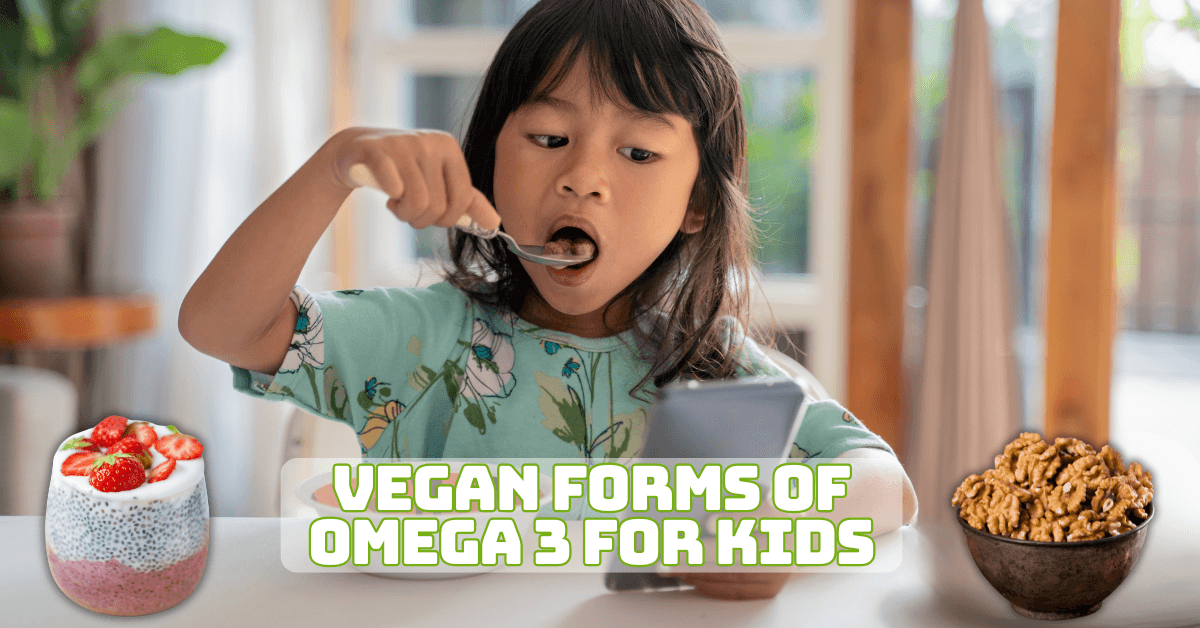
All About Omega-3 – You Need To Know
Omega-3 fatty acids are a group of essential fats that play a crucial role in maintaining good health, especially for growing children.
Among the different types of omega-3s, eicosapentaenoic acid (EPA) and docosahexaenoic acid (DHA) are particularly important.
These fatty acids contribute to brain development, cognitive function, and vision health.
DHA, in particular, is a major structural component of the brain and retina, making it a critical nutrient during childhood when brain growth and visual acuity are rapid.
Additionally, omega-3s possess anti-inflammatory properties that support a healthy immune system and reduce the risk of chronic diseases.
While fatty fish like salmon, mackerel, and sardines are rich sources of DHA and EPA, plant-based options also exist for families following vegetarian or vegan diets.
Flaxseeds, chia seeds, walnuts, and hemp seeds are excellent sources of omega-3 called alpha-linolenic acid (ALA), which the body can convert into DHA and EPA to a certain extent.
However, children's bodies may not efficiently convert ALA into DHA and EPA, making direct sources of these fatty acids crucial for their development.
To ensure an adequate intake of omega-3s, parents often turn to supplements specifically formulated for kids.
These supplements can be sourced from algae, a direct source of DHA and EPA and are suitable for vegetarian and vegan diets.
When considering omega-3 supplements for children, it's essential to consult healthcare professionals to determine the appropriate dosage and ensure they are free from contaminants.
By incorporating omega-3s into their children's diets through nutrient-rich foods and reliable supplements, parents can contribute to their overall growth, cognitive function, and long-term health.
Benefits Of Omega-3 For Kids
Omega-3 fatty acids offer a range of significant benefits for children's health and development. Here are some key advantages:
1. Brain Development And Cognitive Function
Omega-3 fatty acids, particularly DHA, are integral to brain cell membranes.
During childhood, when the brain is rapidly developing, DHA plays a critical role in shaping the structure and function of neurons.
Adequate intake of DHA has been linked to improved cognitive functions such as memory, problem-solving skills, and information processing.
Research suggests that children with higher levels of omega-3s in their diets tend to perform better in cognitive tasks and have enhanced learning abilities.
2. Vision Health
DHA is crucial not only for brain development but also for developing the retina in the eyes.
The retina has a high concentration of DHA, which supports the optimal operation of photoreceptor cells and visual acuity.
Ensuring adequate DHA intake during childhood supports healthy vision development and may reduce the risk of eye-related issues later in life.
3. Behavioural And Mood Regulation
Omega-3s, especially EPA, have gained attention for their potential role in supporting emotional well-being.
Some studies suggest that omega-3 supplementation might help alleviate symptoms of anxiety and depression in children.
Additionally, omega-3s have been associated with improved behaviour and reduced aggressive or impulsive behaviour, contributing to a more balanced emotional state.
4. Immune System Support
Omega-3 fatty acids possess anti-inflammatory properties that can enhance the body's immune response.
By modulating inflammation, omega-3s support a well-regulated immune system, helping children better fight off infections and illnesses.
This immune-boosting effect is particularly important during the formative years of childhood when the immune system is still developing.
5. Heart Health
Omega-3s play a role in promoting cardiovascular health even from a young age.
They are associated with reduced blood pressure, improved cholesterol levels, and a decreased risk of heart disease later in life.
Children may reap long-term benefits for their cardiovascular well-being by fostering healthy heart habits early on.
6. Attention Deficit Hyperactivity Disorder (ADHD) Support
Some studies suggest that omega-3 supplementation may positively impact children with ADHD.
While research findings are inconclusive, omega-3s' potential role in improving attention and reducing hyperactivity symptoms is an area of ongoing investigation.
7. Bone Health
Omega-3s' relationship with bone health is their ability to enhance calcium absorption and promote bone density. This is particularly important during childhood, when bones grow and develop rapidly.
8. Overall Growth And Development
Omega-3 fatty acids are involved in numerous physiological processes contributing to overall growth and development.
From supporting healthy cell membranes to regulating inflammation and enhancing brain function, omega-3s ensure children's optimal well-being.
Incorporating omega-3-rich foods like fatty fish (for non-vegetarian diets), flaxseeds, chia seeds, walnuts, and enriched plant-based options into a child's diet can help harness these benefits.
For parents seeking alternatives, algae-based omega-3 supplements formulated for kids can provide a reliable source of DHA and EPA.
However, it's vital to consult healthcare professionals before making significant dietary changes or introducing supplements to a child's routine.
Vegan Sources Of Omega-3 For Kids
Navigating the realm of nutrition for growing children is a task that parents and caregivers approach with enthusiasm and concern.
In the world of essential nutrients, omega-3 fatty acids support children's optimal development. As more families adopt vegan lifestyles or seek plant-based alternatives, the search for suitable sources of omega-3s becomes paramount.
Ensuring your child's health and well-being while adhering to a vegan diet is a rewarding journey, and understanding the diverse array of vegan sources of omega-3s can open up a world of nourishing possibilities.
Choosing the best omega-3 supplement for kids involves considering safety, effectiveness, and suitability for your child's preferences. Here are some options to explore:

1. Algae-Based Omega-3 Supplements
Algae-based omega-3 supplements offer a remarkable solution for families seeking vegan sources of essential fatty acids for their children.
These supplements are derived from aquatic plants and provide a direct and sustainable source of DHA and EPA, the crucial omega-3 fatty acids vital for cognitive and overall growth.
The unique advantage of these supplements lies in their origin from algae, the primary source of omega-3s in marine ecosystems.
By bypassing the fish consumption link, these supplements offer a cleaner and purer option, free from potential contaminants that might concern health-conscious parents.
Algae-based omega-3 supplements provide a reassuring alternative for families committed to a plant-based lifestyle, allowing children to access the benefits of omega-3 without compromising their dietary choices or environmental values.
This innovative approach aligns with ethical considerations and ensures that your child's nutritional needs are met with utmost care and consciousness.
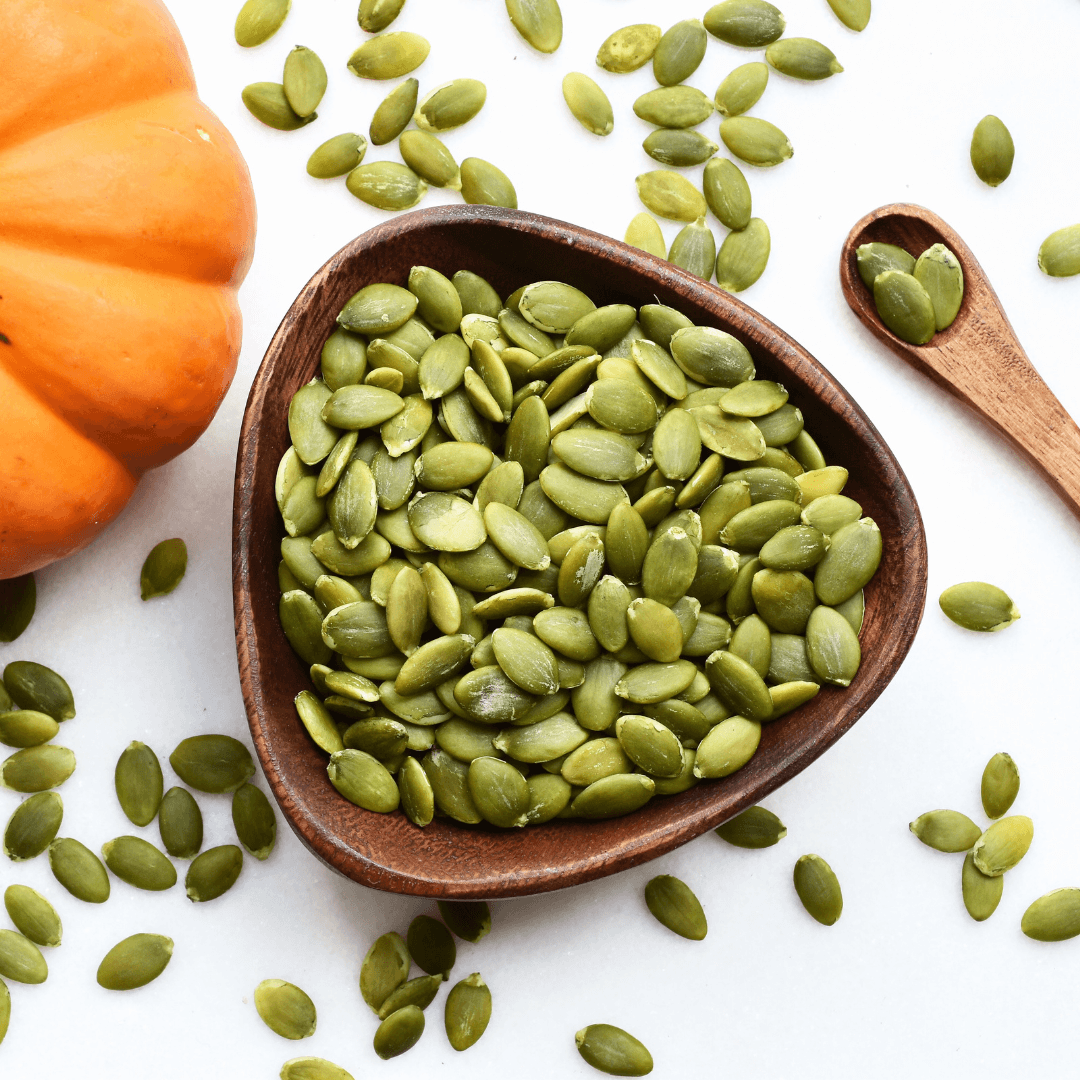
2. Pumpkin Seeds
Pumpkin seeds, often called pepitas, emerge as a delightful and healthful addition to a child's diet, offering a modest yet significant source of ALA omega-3 fatty acids.
These small yet nutrient-packed seeds boast a satisfying crunch that appeals to young taste buds, making them an ideal on-the-go snack or a versatile ingredient in various dishes.
Rich in essential minerals like magnesium, zinc, and iron, pumpkin seeds contribute not only to omega-3 intake but also to overall nutrition.
Whether enjoyed as a standalone snack, sprinkled onto salads, or mixed into yogurt, these seeds add a delightful texture and a subtle nutty flavour to meals.
Pumpkin seeds are a creative way to introduce plant-based omega-3s to children's diets, promoting their well-being while catering to their preference for tasty and enjoyable food options.
As parents explore innovative ways to provide optimal nutrition to their little ones, pumpkin seeds are a wholesome choice combining nutrition, flavour, and convenience.
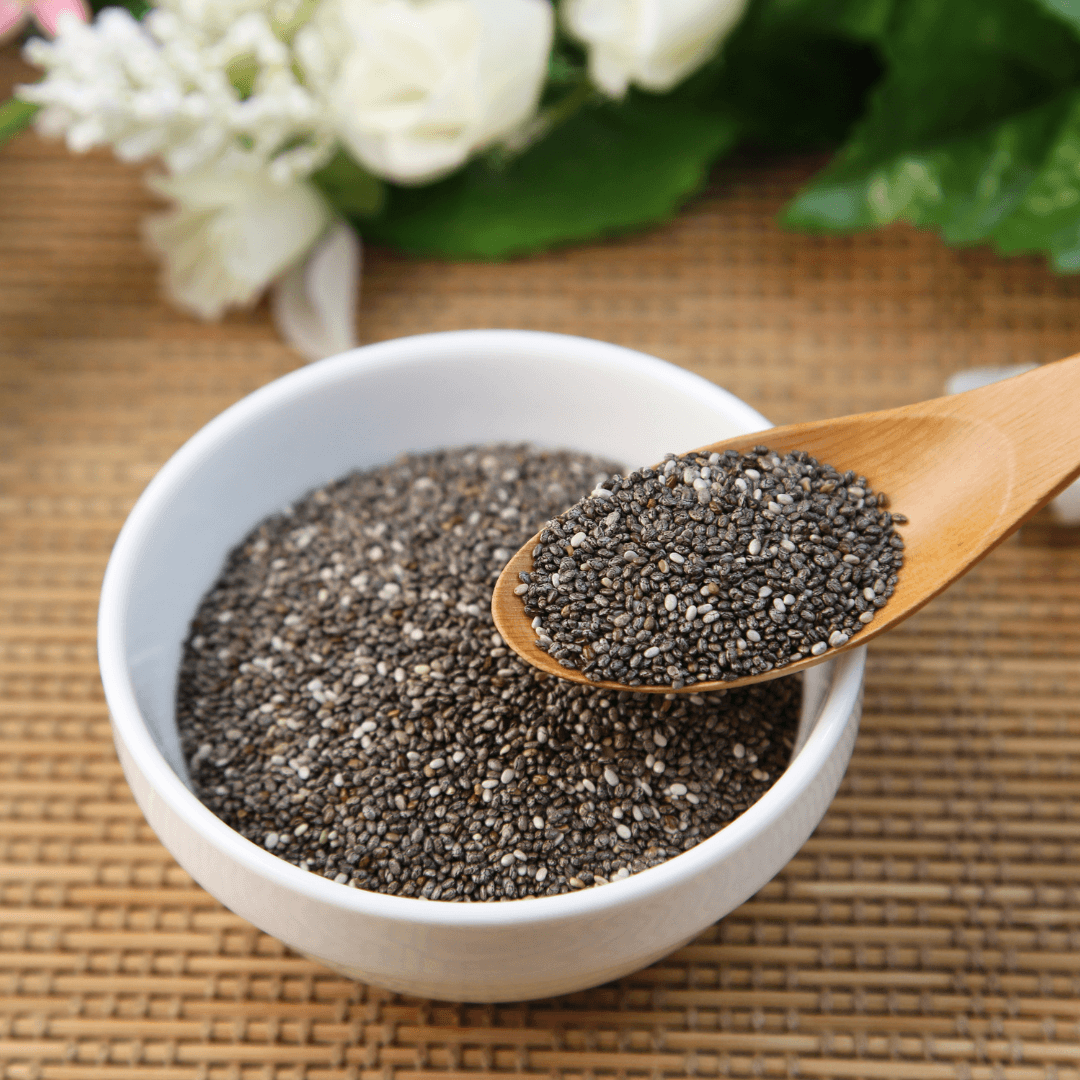
3. Chia Seeds
Chia seeds, those small nutritional powerhouses, are now recognized as a superior plant-based source of omega-3 fatty acids, making them an important part of any child's diet.
These little seeds teem with ALA omega-3s, offering a nourishing boost supporting children's growth and development.
The versatility of chia seeds allows them to seamlessly integrate into various culinary creations, whether blending them into nutrient-packed smoothies, sprinkling them onto yogurt for added crunch, stirring them into wholesome oatmeal, or crafting delightful chia pudding.
Their neutral flavour makes them adaptable to sweet and savoury dishes, ensuring children can relish their benefits without fuss.
Beyond omega-3s, chia seeds bring an impressive array of nutrients, including fiber, protein, and essential minerals like calcium and magnesium.
Incorporating chia seeds into your child's diet enriches their meals. It empowers them with a source of natural, plant-based vitality that can be enjoyed in countless delicious and creative ways.
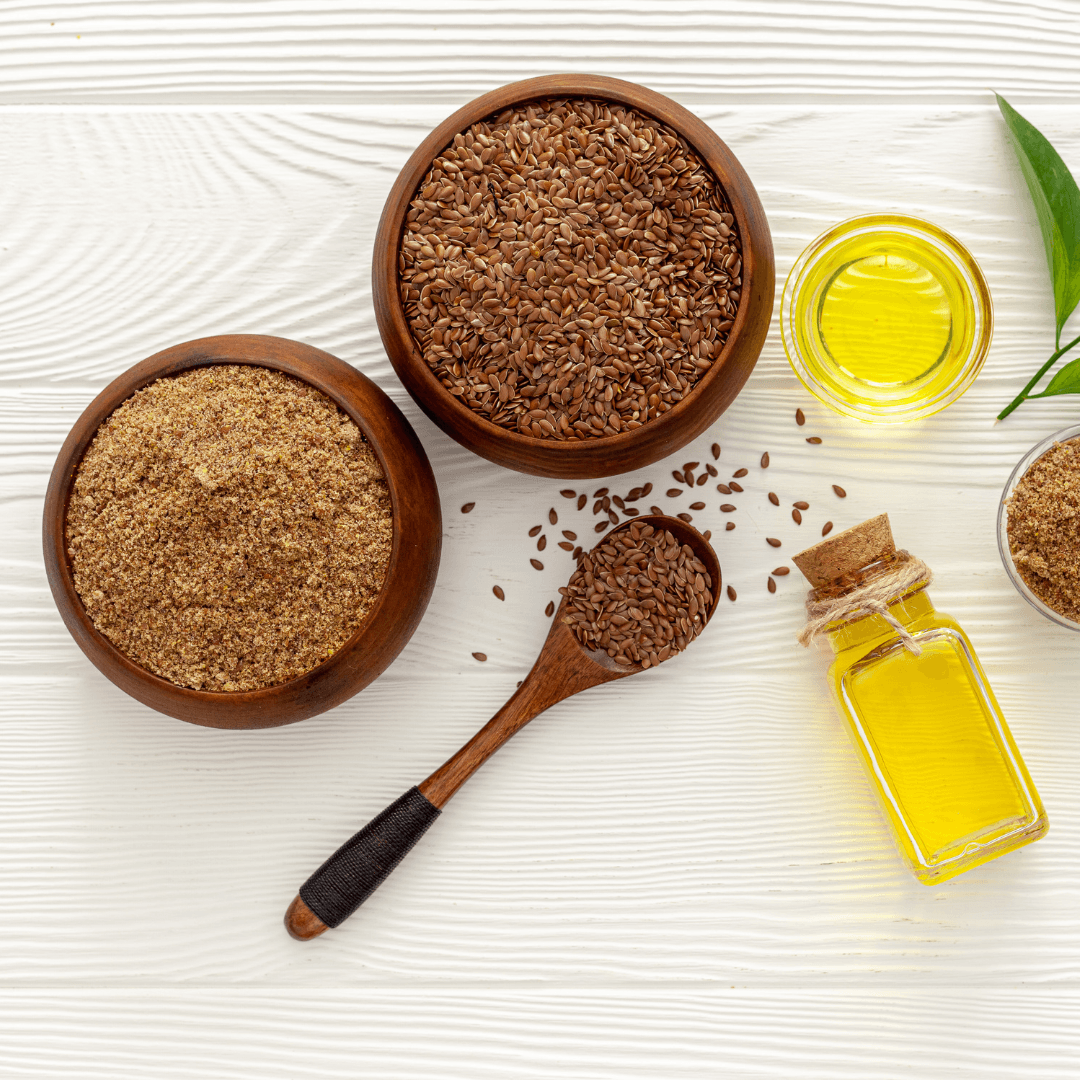
4. Flaxseeds
Flaxseeds, renowned for their nutritional prowess, are another outstanding plant-based reservoir of omega-3 fatty acids, specifically in the form of ALA.
These small but mighty seeds offer a versatile means of infusing essential omega-3s into your child's diet. Whether used in whole or ground form, flaxseeds present various culinary possibilities.
Ground flaxseeds can be effortlessly incorporated into breakfast cereals, adding a subtle nutty flavour and a dose of omega-3s.
For aspiring young bakers, flaxseeds can be an ingenious egg substitute in recipes, enhancing nutritional content and binding capabilities.
Adding flaxseeds to yogurt introduces a delightful crunch and contributes to omega-3 intake.
The benefits extend beyond omega-3s, as flaxseeds also provide dietary fiber and lignans, compounds that are known for their potential health-promoting properties.
Embracing flaxseeds in your child's diet enriches their meals and instills a sense of nourishment from these unassuming seeds.
Whether as a sneaky addition to baked treats or a sprinkling of goodness atop morning cereals, flaxseeds prove that small seeds can pack a powerful nutritional punch.
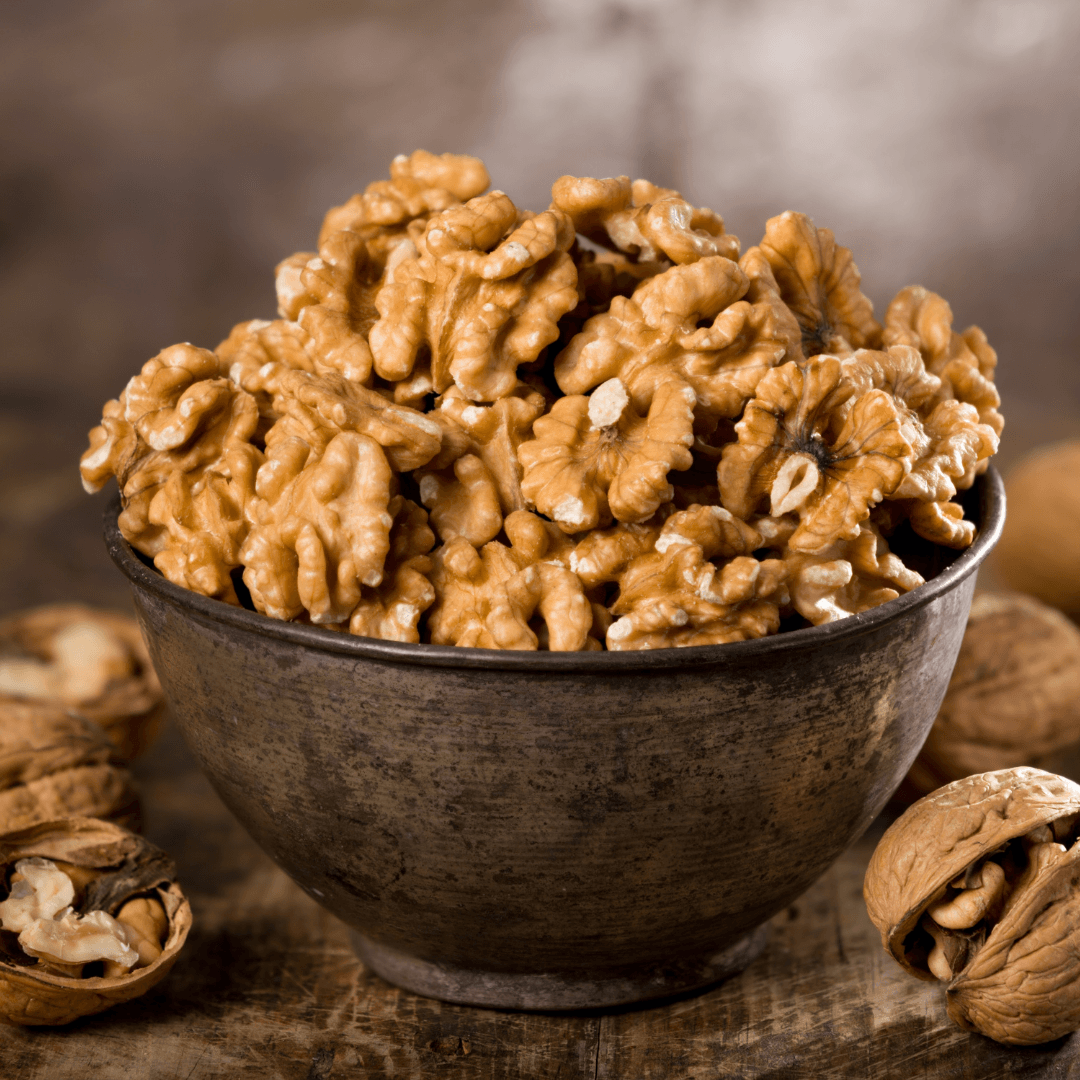
5. Walnuts
As a delicious and healthful source of ALA omega-3 fatty acids, walnuts—revered for their distinctive flavour and sturdy texture—make an alluring addition to your child's diet.
These brain-shaped nuts provide a tasty snack alternative that improves nutrition, promoting kids' growth and cognitive development.
In addition to their delicious flavour, walnuts burst with ALA, an important omega-3 fatty acid vital to overall well-being.
Integrating walnuts into your child's diet can be as simple as adding them to trail mix, providing a satisfying crunch alongside other nutritious components.
They can also transform ordinary salads into nutrient-rich creations, enhancing flavour and texture.
Sprinkling walnuts atop a comforting bowl of oatmeal introduces a delightful contrast and infuses the meal with valuable omega-3s.
As young taste buds explore the world of flavours, walnuts stand out as a wholesome snack and a versatile ingredient that nurtures health from within.
Including these delectable nuts offers a delightful culinary experience and fosters a nourishing journey that fuels body and mind.
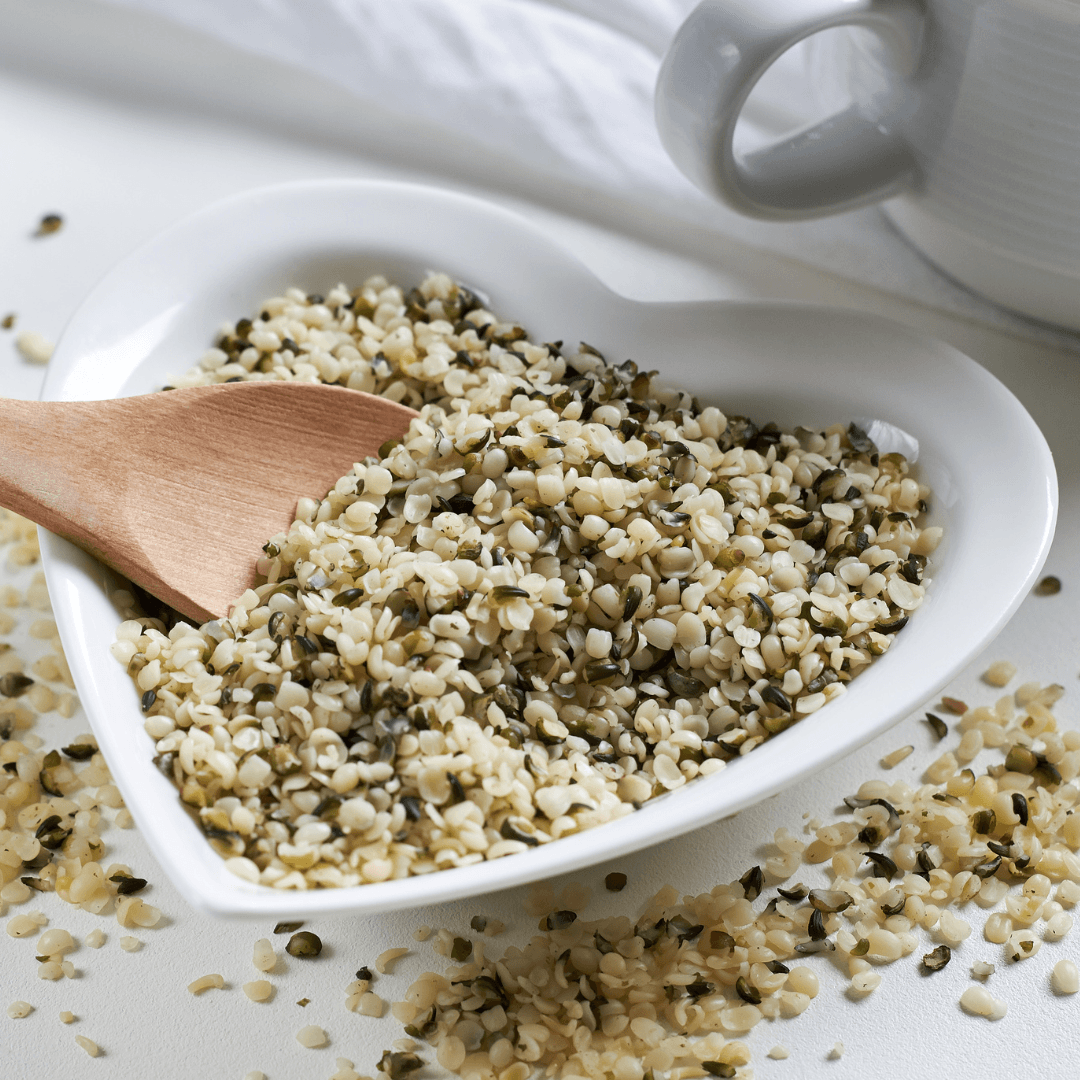
6. Hemp Seeds
Hemp seeds, often called nature's treasure trove, emerge as a harmonious blend of omega-3s and omega-6s, providing a balanced and nutritious boost to your child's dietary intake.
These unassuming seeds are abundant in ALA omega-3 fatty acids and omega-6s, promoting an optimal balance between these essential fatty acids.
The versatility of hemp seeds invites creative culinary exploration, allowing you to sprinkle them onto salads for a subtle crunch and an omega-3 infusion.
Blending them into smoothies imparts a subtle nutty flavour and adds a nutritional dimension to the beverage.
Incorporating hemp seeds into homemade granola bars introduces a wholesome and omega-rich element to the snack.
Beyond their fatty acid profile, hemp seeds offer an impressive array of nutrients, including protein, fiber, and essential minerals like magnesium and phosphorus.
By incorporating these nutrient-dense seeds into your child's diet, you're introducing a source of essential omega-3s and omega-6s and imbuing their meals with a touch of natural vitality.
Hemp seeds stand as a testament to the wonders of plant-based nutrition, fostering health and well-being while inviting young palates to explore a world of taste and texture.
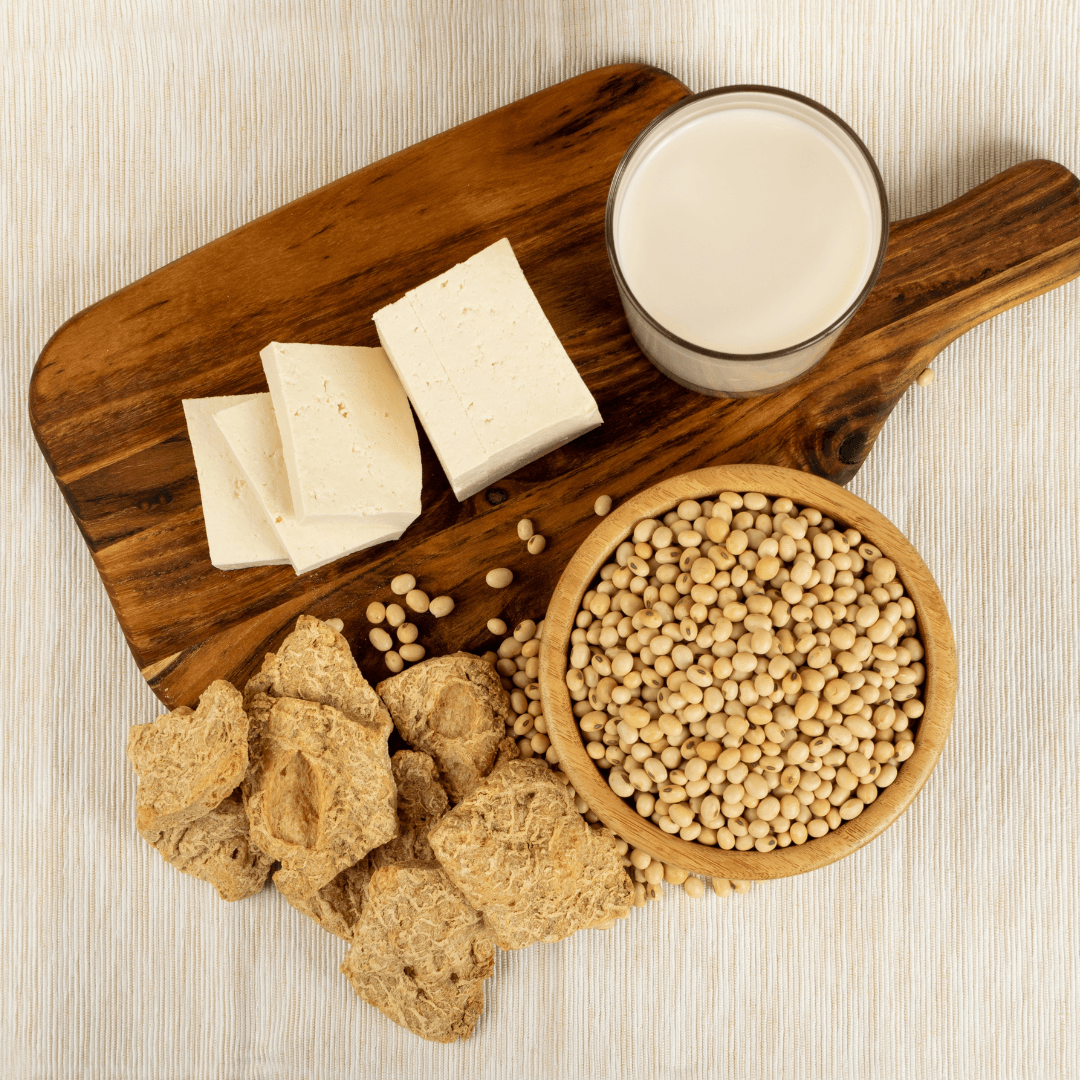
7. Soybeans And Tofu
Soybeans and tofu, iconic staples in plant-based cuisine, emerge as modest yet valuable sources of ALA omega-3 fatty acids, enriching your child's diet with essential nutrition.
These soy-based offerings contribute to omega-3 intake and bring a wholesome protein component to meals.
Soybeans can be integrated into various dishes, from hearty stir-fries to vibrant salads, adding texture and a nutritional boost.
Tofu, derived from soybeans, offers a versatile canvas for culinary creativity.
Whether crumbled into tofu scrambles or marinated for a flavorful stir-fry, tofu introduces an omega-3 presence alongside its protein richness.
While these soy-based sources may not provide as high a concentration of omega-3s as other options, they contribute to a well-rounded plant-based diet that supports growing children's needs.
Incorporating soybeans and tofu into your child's meals fosters nutritional diversity and introduces them to the versatility of plant-based ingredients.
By doing so, you're nurturing their health, shaping their palates, and fostering an appreciation for nature's bounty's goodness.

8. Canola Oil
Canola oil, a versatile and commonly used cooking oil, is convenient for infusing your child's meals with ALA omega-3 fatty acids.
While not as potent a source as some other options, canola oil serves as a culinary ally, providing a subtle omega-3 presence while enhancing the flavours of various dishes.
Its mild taste makes it suitable for various cooking applications, from sautéing vegetables to baking treats and crafting flavorful dressings.
Canola oil's versatility extends beyond its culinary applications; it can also be a gateway for introducing omega-3s into everyday meals without altering taste preferences.
While it's essential to consider the overall diet's balance, incorporating canola oil can contribute to the daily omega-3 intake for children who may not readily embrace other sources.
By incorporating this cooking oil into your culinary repertoire, you're not just adding depth and richness to your dishes but subtly enriching them with the nutritional benefits of omega-3s, supporting your child's well-being in a way that harmonizes with their taste preferences.
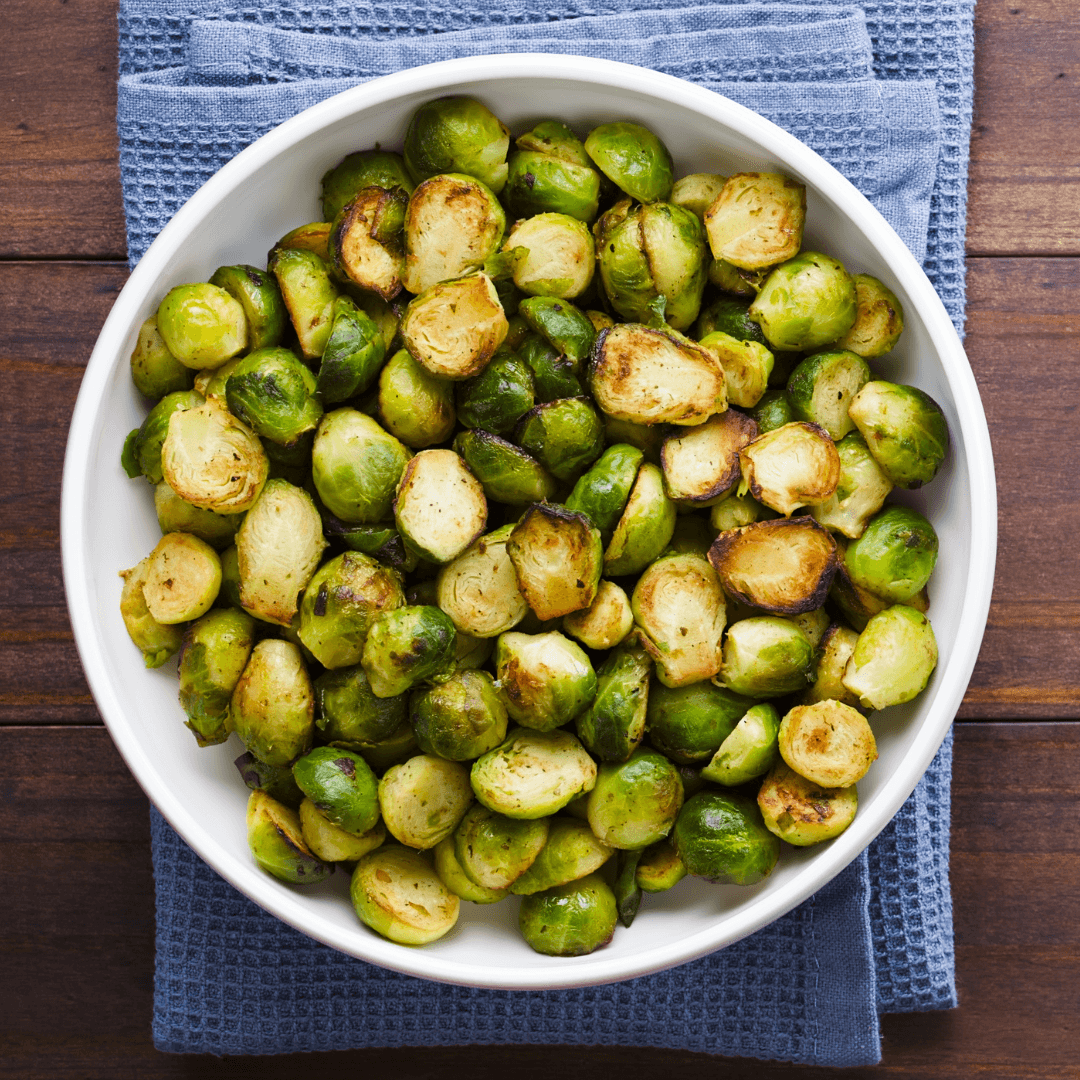
9. Brussels Sprouts
Brussels sprouts, nature's miniature cabbages, emerge as a surprising yet delectable source of ALA omega-3 fatty acids, offering a nutritious twist to your child's diet.
These cruciferous gems boast a combination of healthful compounds, including omega-3s, that contribute to overall well-being.
Roasting or sautéing Brussels sprouts unleashes their nutty flavour and tender texture, transforming them into a delicious side dish or a satisfying snack.
Including Brussels sprouts enriches meals with essential nutrients and introduces children to flavourful vegetables.
These bite-sized vegetables can be seasoned with various flavours, making them a versatile addition to family meals.
While Brussels sprouts may not be a primary source of omega-3s, they showcase the abundant and diverse ways in which plant-based foods can contribute to a balanced diet.
By incorporating these mini marvels into your child's culinary repertoire, you're cultivating their palate and nurturing their health with a touch of green goodness.
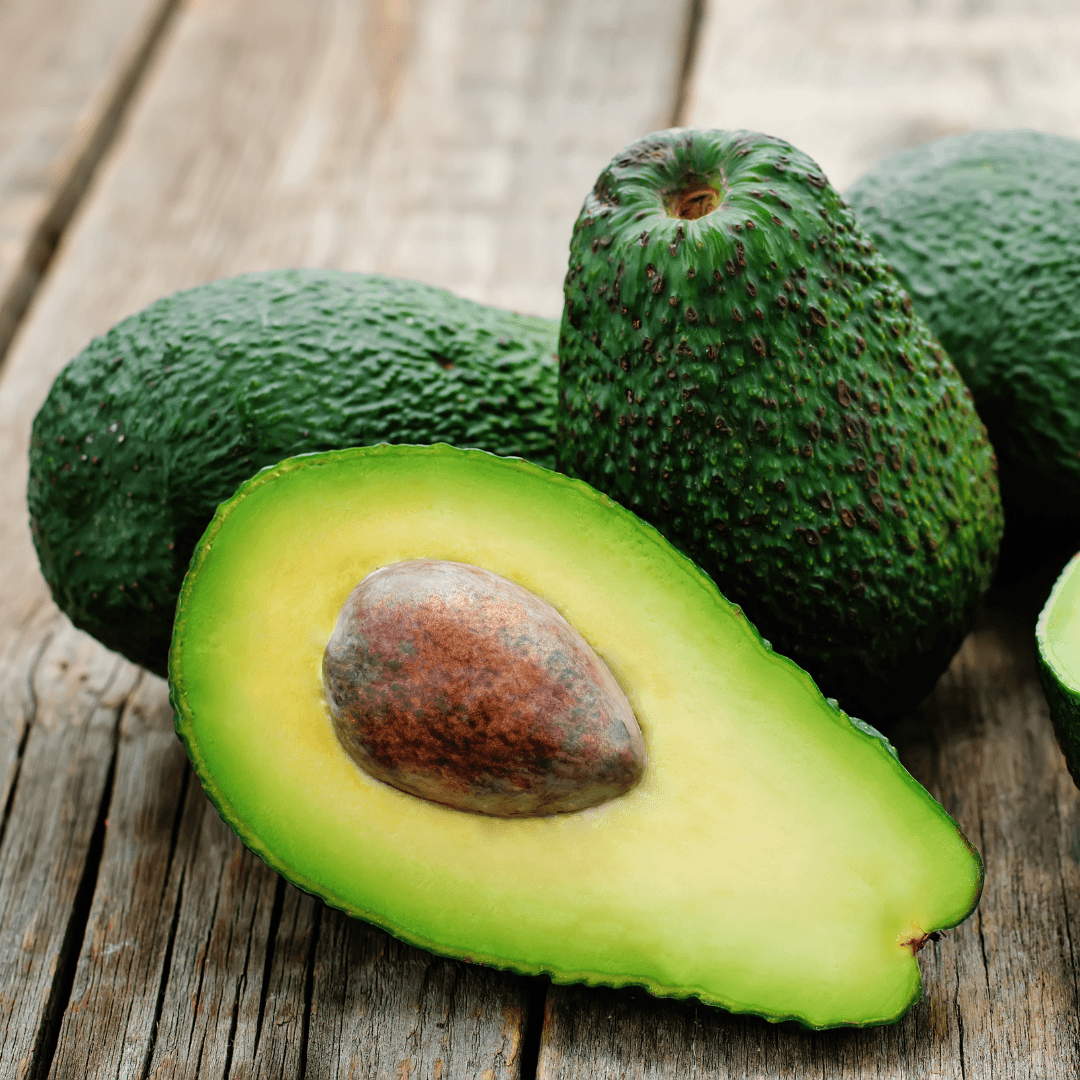
10. Avocado
Often celebrated for its creamy texture and rich flavour, the Avocado emerges as an unexpected yet delightful contributor of ALA omega-3 fatty acids to your child's dietary landscape.
Beyond its culinary versatility, avocados impart a nutritional boost to various dishes, making them a valuable addition to your child's diet.
Slicing avocados and adding them to sandwiches introduces a luscious texture and a hint of omega-3 goodness.
Incorporating avocado slices into vibrant salads enhances taste and nutritional content, offering textures and flavours.
Utilizing avocado as a spread, whether on whole grain toast or as a base for wraps, introduces its wholesome richness while delivering a subtle dose of omega-3s.
While avocados may not be a primary source of these essential fatty acids, they embody the philosophy of nutritional diversity that characterizes a well-rounded diet.
Introducing avocados to your child's meals elevates taste and fosters a connection with nourishing foods that support their growth and development.
By savouring the velvety goodness of avocados, your child can embrace the idea that nutritious choices can be both delicious and rewarding.
Conclusion
In the quest to ensure our children's optimal health and well-being, including omega-3 fatty acids in their diets emerges as a crucial aspect.
The remarkable benefits that omega-3s offer, ranging from cognitive development to heart health, underscore their significance in nurturing the growth of our young ones.
The journey to incorporate omega-3s into your child's diet can be an exploration that transcends taste, touching upon the principles of sustainability, health consciousness, and compassionate living.
Essentially, the best omega-3 for kids aligns with their unique preferences, supports their growth, and mirrors the values that resonate within your family.
Whether through ground flaxseeds sprinkled on oatmeal, a drizzle of canola oil in a sauté, or the incorporation of fortified foods and supplements, the world of omega-3s invites you to tailor their intake to your child's needs.
Ultimately, this journey transcends nutrition, inviting you to embark on a voyage that nourishes your kids' bodies and nurtures their connection to the world.
I trust you enjoyed this article about the Best Vegan Forms Of Omega-3 For Kids. Please stay tuned for more blog posts to come shortly. Take care!
JeannetteZ
>>> Please click here to read my Vegan Travel Guides To World Destinations <<<
>>> Want To Learn How To Create Delicious, Cruelty-Free, Healthy AND 100% Vegan Meals? Try These Awesome Vegan Cooking Courses With A Free 7-DAY MEMBERSHIP<<<
Your Opinion Is Important To Me
Do you have thoughts, ideas, or questions? I would love to hear from you. Please leave me your questions, experiences, and remarks about the Best Vegan Forms Of Omega-3 For Kids article in the comments section below. You can also reach me by email at Jeannette@LivingTheVeganLifestyle.org.
Disclosure
This post may contain affiliate links. I earn from qualifying purchases as an Amazon Associate and other affiliate programs. Please read my full disclosure.
Here are links to some of my favourite articles:
Best Sources Of Vitamin B12 For Kids
Best Vegan Pet Food And Care For Pet Owners
Dealing With Food Allergies As A Vegan
Volunteering With The Vegan Society
A Vegan Guide To Folkestone, Great Britain






